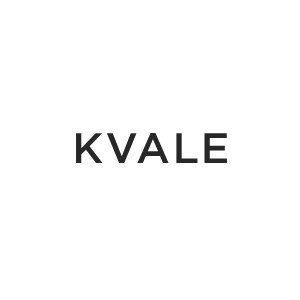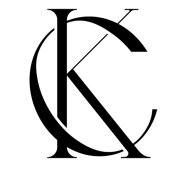Best Creditor Lawyers in Oslo
Share your needs with us, get contacted by law firms.
Free. Takes 2 min.
List of the best lawyers in Oslo, Norway
About Creditor Law in Oslo, Norway
Creditor law in Oslo, Norway, pertains to the legal parameters and regulations governing the relationship between creditors and debtors. This field focuses on creditor rights concerning debt collection, enforcement of claims, and insolvency proceedings. Oslo, being the capital and a significant economic hub, has well-defined legal frameworks to manage and resolve creditor-debtor disputes efficiently. Understanding these regulations is crucial for both creditors seeking to recover their dues and debtors needing to manage or settle their debts legally.
Why You May Need a Lawyer
Hiring a lawyer experienced in creditor law can be essential in various situations, including:
- Debt Recovery: When a debtor fails to meet their financial obligations, legal assistance can help you navigate the process of debt recovery.
- Enforcement of Judgments: Lawyers can assist in enforcing court judgments to ensure that you receive the compensation awarded to you.
- Bankruptcy Proceedings: In scenarios where a debtor declares bankruptcy, understanding your rights and potential recovery as a creditor is crucial.
- Contract Disputes: If there's a contractual disagreement regarding terms of payment, legal counsel can help resolve the dispute.
- Negotiations and Settlements: Skilled lawyers can negotiate favorable settlements or payment plans on your behalf to recover dues without prolonged litigation.
Local Laws Overview
Several key aspects of local laws in Oslo, Norway, are particularly relevant to creditor-debtor relationships:
- Debt Collection Regulations: Norwegian law outlines specific procedures for debt collection, emphasizing fair practices and transparency.
- Enforcement Proceedings: The Enforcement Act (Namsmannens myndighet) governs how creditors can enforce claims through court orders and other legal mechanisms.
- Bankruptcy Law: The Bankruptcy Act (Konkursslovgivningen) details the processes involved when a debtor declares bankruptcy, including creditor meetings and claim rankings.
- Interest and Fees: Important regulations exist regarding the calculation and permissible limits of interest and fees on outstanding debts.
- Consumer Protection: Consumer protection laws safeguard debtors against unfair practices, ensuring a balanced approach in creditor-debtor engagements.
Frequently Asked Questions
What steps can I take to recover a debt?
Initially, you should attempt to resolve the issue through negotiation. If unsuccessful, sending a formal demand letter may be the next step, followed by legal proceedings if necessary.
How long does the debt recovery process take?
The timeframe can vary widely based on the complexity of the case, the debtor's responsiveness, and court schedules. Simple cases may take a few months, while more complex ones may take longer.
What is the statute of limitations for debt collection in Norway?
Generally, the statute of limitations for debt collection is three years but can extend to up to 10 years in some cases. The specific period depends on the nature of the debt.
Can I charge interest on overdue payments?
Yes, creditors are generally allowed to charge interest on overdue payments. The interest rate must comply with Norwegian legal standards and should be specified in the original agreement.
How do I file a bankruptcy claim against a debtor?
You can file for bankruptcy proceedings through the Oslo Court of Enforcement (Namsmannen). It involves submitting relevant documentation to prove your claim and the debtor's insolvency.
What legal documents are necessary for debt collection?
Essential documents typically include the original contract or agreement, invoices, proof of delivery, communication records, and any previous demand letters.
Can I pursue legal action if the debtor is in another country?
International debt collection can be complex and may require legal assistance to navigate different jurisdictions' rules. It's often useful to consult a lawyer experienced in international creditor law.
What options do I have if the debtor declares bankruptcy?
As a creditor, you can participate in the bankruptcy proceedings to lodge your claim. You may recover funds based on asset liquidation and the priority of your claim as determined by the court.
Can consumer protection laws affect my ability to collect debts?
Yes, consumer protection laws ensure fair treatment of debtors, and violating these can complicate or hinder debt collection activities. Adhering to these regulations is crucial.
Should I hire a lawyer or a debt collection agency?
Both options have their merits. A debt collection agency can handle straightforward cases efficiently, while a lawyer can provide comprehensive legal advice and represent you in complex disputes or court proceedings.
Additional Resources
The following resources can be helpful when seeking legal advice or assistance in creditor matters:
- Oslo Court of Enforcement (Namsmannen): Manages debt enforcement proceedings.
- Norwegian Bar Association: Provides a directory of qualified lawyers specializing in creditor law.
- Consumer Council of Norway: Offers guidance on consumer protection related issues.
- Brønnøysund Register Centre: Provides information on bankruptcy filings and proceedings.
Next Steps
If you require legal assistance in creditor law, consider the following steps:
- Consult a Lawyer: Seek a consultation with a lawyer experienced in creditor law to discuss your case and understand your options.
- Gather Documentation: Compile all relevant documents, including contracts, invoices, correspondence, and any proof of debt, to facilitate your case.
- Understand Your Rights: Educate yourself on your rights and obligations under Norwegian creditor law to make informed decisions.
- Consider Mediation: Before initiating legal proceedings, consider mediation to resolve disputes amicably and cost-effectively.
- Stay Updated: Regularly monitor the status of your case and maintain communication with your legal representative to ensure timely and effective action.
Lawzana helps you find the best lawyers and law firms in Oslo through a curated and pre-screened list of qualified legal professionals. Our platform offers rankings and detailed profiles of attorneys and law firms, allowing you to compare based on practice areas, including Creditor, experience, and client feedback.
Each profile includes a description of the firm's areas of practice, client reviews, team members and partners, year of establishment, spoken languages, office locations, contact information, social media presence, and any published articles or resources. Most firms on our platform speak English and are experienced in both local and international legal matters.
Get a quote from top-rated law firms in Oslo, Norway — quickly, securely, and without unnecessary hassle.
Disclaimer:
The information provided on this page is for general informational purposes only and does not constitute legal advice. While we strive to ensure the accuracy and relevance of the content, legal information may change over time, and interpretations of the law can vary. You should always consult with a qualified legal professional for advice specific to your situation.
We disclaim all liability for actions taken or not taken based on the content of this page. If you believe any information is incorrect or outdated, please contact us, and we will review and update it where appropriate.













